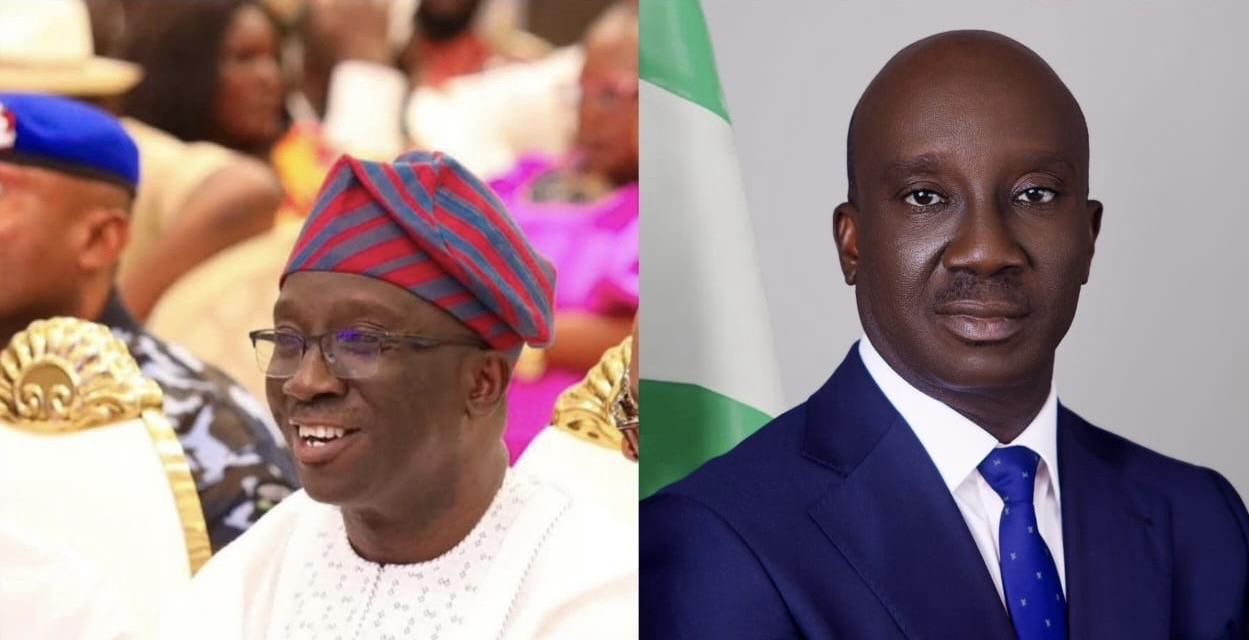BY CAROLINE AMEH
The Federal Ministry of Finance has offered further insight into the Federal Government’s proposed 2024–2026 External Borrowing Rolling Plan, which was recently forwarded to the National Assembly for legislative approval by President Bola Ahmed Tinubu.
In a statement issued by Mohammed Manga, FCAI, Director of Information and Public Relations, the Ministry explained that the borrowing plan is a key component of Nigeria’s Medium-Term Expenditure Framework (MTEF), in line with the provisions of the Fiscal Responsibility Act of 2007 and the Debt Management Office (DMO) Act of 2003.
The Ministry described the plan as a structured, forward-looking mechanism for financing critical development initiatives at both the federal and sub-national levels.
Backed by five appendices detailing project scopes, loan conditions, and disbursement timelines, the plan aims to curb inefficient, reactive borrowing and instead promote sound fiscal discipline through strategic planning.
Importantly, the Ministry clarified that the plan itself does not equate to immediate borrowing. Rather, specific borrowing figures are reflected annually within the national budget.
For instance, the proposed external borrowing for 2025 stands at $1.23 billion, an amount that has not yet been accessed but is expected to be drawn later in the year, depending on project implementation schedules.
The plan includes funding for initiatives across several states—Abia, Bauchi, Borno, Gombe, Kaduna, Lagos, Niger, Oyo, Sokoto, and Yobe—most of which will be financed through project-tied loans disbursed over multi-year periods, typically ranging from five to seven years.
These loans are targeted at strengthening infrastructure and accelerating development in key sectors.
Some of the projects covered include the expansion of national power transmission lines, irrigation systems to improve food security, extension of fibre optic connectivity, acquisition of fighter jets to bolster security, and the development of roads and rail lines.
The bulk of the funding is expected to come from development partners such as the World Bank, African Development Bank, French Development Agency, European Investment Bank, JICA, China EximBank, and the Islamic Development Bank.
These lenders offer concessional loans on favourable terms, including low interest rates and extended repayment periods, making them a viable option for long-term investment.
Acknowledging public concerns about Nigeria’s debt levels, the Ministry noted that the debt service-to-revenue ratio—once exceeding 90% in 2023—has begun to ease. This improvement is partly attributed to the cessation of inflationary borrowing through the Central Bank’s “ways and means” facility.
The government expects further gains in revenue, supported by increased remittances from the Nigerian National Petroleum Corporation (NNPC) and enhanced collection systems across Government-Owned Enterprises and key revenue-generating ministries and agencies.
As macroeconomic conditions began to stabilise, the Federal Government reaffirmed its focus on repositioning the economy for inclusive and sustainable growth. This strategy hinges on increased investment in transportation, energy, infrastructure, and agriculture, and seeks to create an enabling environment for private sector participation.
“Our borrowing strategy is guided not just by the size of our obligations, but by their economic value, sustainability, and developmental impact,” the Ministry stated, adding that transparency and efficiency in fund utilisation remain top priorities.
Reiterating its commitment to fiscal responsibility, the Ministry assured Nigerians that all borrowing will remain within sustainable limits, in accordance with the DMO’s Debt Sustainability Framework. It also highlighted the role of ongoing tax reforms and revenue-enhancing measures in supporting overall fiscal health.
The Ministry concluded by pledging continued openness, accountability, and strong legislative oversight as vital components of Nigeria’s long-term path toward economic stability and national prosperity.


